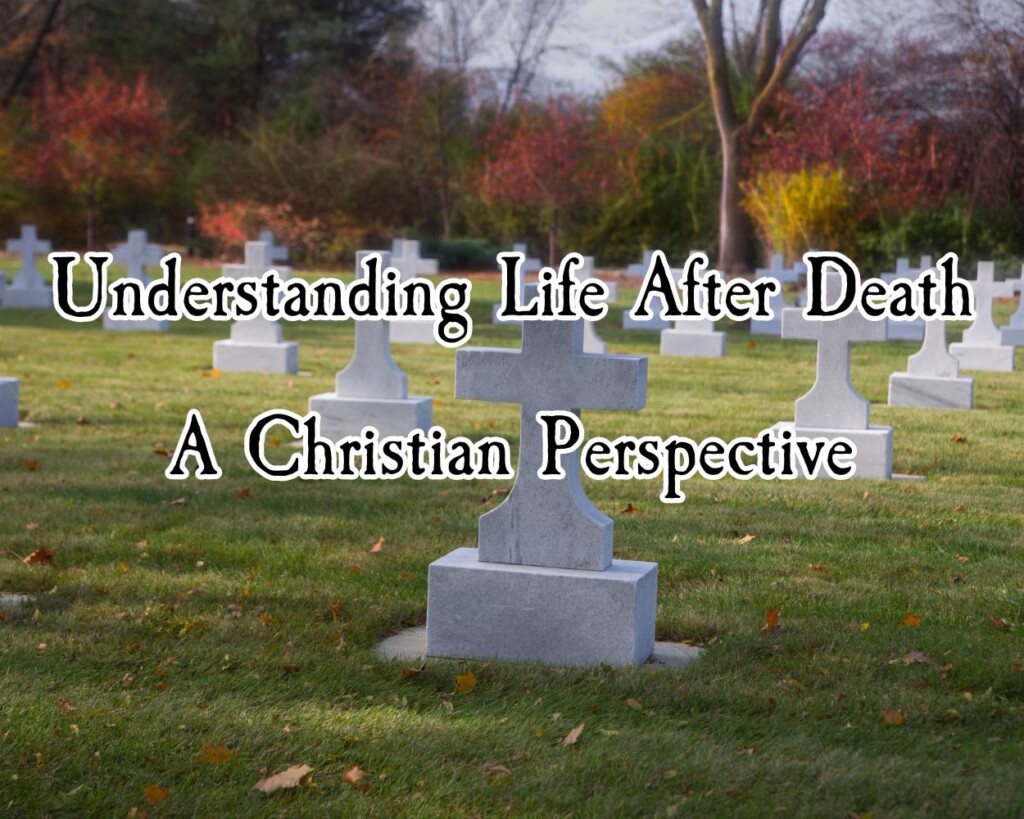From a Christian perspective, the question of what happens after death is deeply rooted in the teachings of the Bible. The concepts of Heaven, Hell, and an intermediate state like Hades are central to Christian eschatology. It’s important to note that interpretations can vary among different Christian denominations and theologians. Here, we’ll explore these concepts based on the King James Version (KJV) of the Bible, aiming to provide a clear and biblically grounded understanding.

Heaven and Hell: The Final Destinations
Eternal Life or Damnation: According to Christian belief, after death, individuals are destined for either Heaven or Hell. This is based on their faith in Jesus Christ and how they lived their lives. Heaven is often described as a place of eternal peace and communion with God, while Hell is depicted as a place of eternal suffering and separation from God.
- Heaven: In John 14:2-3, Jesus says, “In my Father’s house are many mansions… I go to prepare a place for you.”
- Hell: Matthew 25:46 refers to the final judgment, stating, “And these shall go away into everlasting punishment: but the righteous into life eternal.”

Hades: The Intermediate State
A Temporary Realm: Hades, in some Christian interpretations, is seen as a temporary state or place where souls reside until the final judgment. It’s not necessarily synonymous with Hell but is more of a waiting area for the dead.
- Hades in Scripture: In Luke 16:23, the rich man who has died finds himself in Hades, where he is in torment. This passage is often cited in discussions about the intermediate state.
The Concept of Soul Sleep
Resting Until Resurrection: Some Christian groups believe in the concept of ‘soul sleep,’ where the soul remains unconscious after death until the resurrection. This belief is based on verses like Ecclesiastes 9:5, which says, “For the living know that they shall die: but the dead know not any thing.”
The Resurrection and Final Judgment
Awakening to Eternity: Christian doctrine holds that all the dead will be resurrected at the end of time. This belief is rooted in verses like 1 Thessalonians 4:16, which states, “For the Lord himself shall descend from heaven with a shout… and the dead in Christ shall rise first.”
- Judgment Day: Revelation 20:12-13 describes the final judgment, where the dead are judged according to their works. This is the moment when eternal destinies in Heaven or Hell are confirmed.
In Christianity, the journey after death is seen as a transition to a new existence in either Heaven or Hell, based on one’s faith and life on earth. The concept of Hades as an intermediate state is also a part of this belief system, though interpretations vary. Ultimately, the teachings of the Bible emphasize the importance of faith and living a life in accordance with God’s will to secure a place in Heaven.
The Assurance of Salvation
Eternal Security in Christ: A fundamental belief in Christianity is the assurance of salvation for those who have faith in Jesus Christ. This assurance is grounded in verses like John 3:16, which states, “For God so loved the world, that he gave his only begotten Son, that whosoever believeth in him should not perish, but have everlasting life.” This verse emphasizes the belief that faith in Jesus Christ is the key to eternal life. Mark 16:16 also tells us we need to believe and be baptized to be saved.
The Role of Faith and Works
Balancing Belief and Actions: While salvation is often viewed as a gift received through faith, the role of works (or actions) in a person’s life is also significant in many Christian teachings. James 2:26 notes, “For as the body without the spirit is dead, so faith without works is dead also.” This suggests that genuine faith is reflected and confirmed through one’s actions and way of living.
The Comfort in Mourning
Hope Beyond the Grave: Christianity offers comfort in times of mourning, with the promise of a reunion in the afterlife for those who believe. 1 Thessalonians 4:13-14 encourages believers not to grieve without hope, stating, “For if we believe that Jesus died and rose again, even so them also which sleep in Jesus will God bring with him.”

The New Heaven and New Earth
A Renewed Creation: The Christian eschatological vision culminates in the creation of a new Heaven and a new Earth, where there will be no more death, sorrow, or pain. Revelation 21:1-4 describes this new creation, offering a vision of hope and restoration.
Preparing for the Afterlife
Living a Life of Faith: In light of these teachings, Christians are encouraged to live lives that reflect their faith, seeking to follow the teachings of Jesus Christ and the principles outlined in the Bible. This includes acts of love, compassion, and justice, as well as personal spiritual growth and devotion.
Christian beliefs about the afterlife, based on the teachings of the Bible, offer a comprehensive view of life after death, encompassing the concepts of Heaven, Hell, and the intermediate state of Hades. These beliefs provide not only a framework for understanding the afterlife but also guidance for living a life of faith and purpose. The promise of eternal life with God serves as a source of hope and comfort for believers, inspiring them to lead lives that reflect their faith and values.
For further exploration of Christian beliefs and perspectives, PlansWithJesus.com (the website you are on now) offers a range of articles that delve into various aspects of faith and spirituality. Here are a few articles that might interest you:
Personalize Your Faith Journey: Custom Engraved NIV Study Bibles
This article discusses the significance of personalizing your faith journey with custom engraved NIV Study Bibles. It explores how adding a personal touch to your Bible can deepen your connection to your faith.
Finding Strength in Faith on Difficult Days
This piece offers insights into finding strength in faith during challenging times. It provides encouragement and guidance for navigating life’s hardships with a strong foundation in faith.
Understanding Salvation: The Thief on the Cross and Baptism
In this article, the story of the thief on the cross is examined to understand the concept of salvation in Christianity. It delves into the nuances of faith, grace, and the role of baptism.
As an Amazon Associate we earn from qualifying purchases through some links in our articles.



